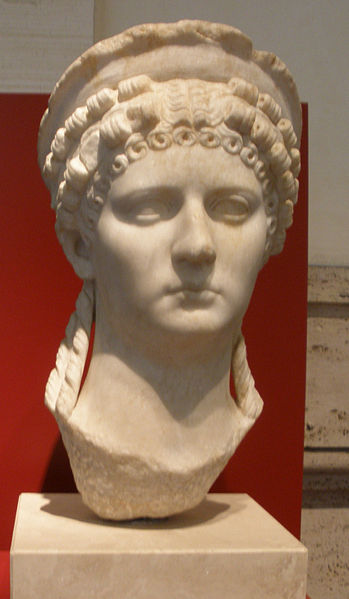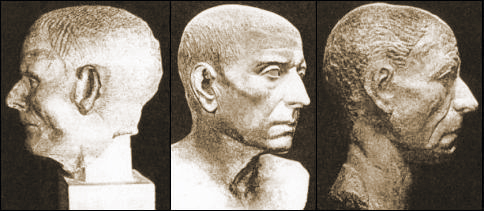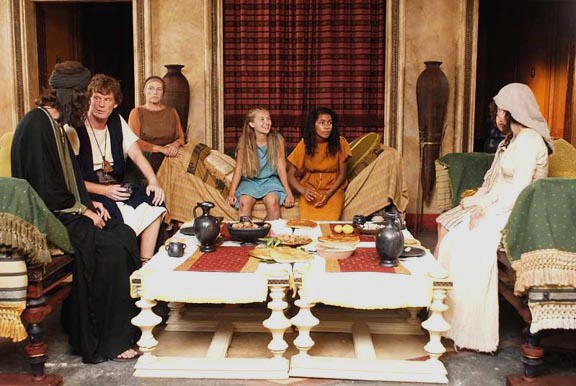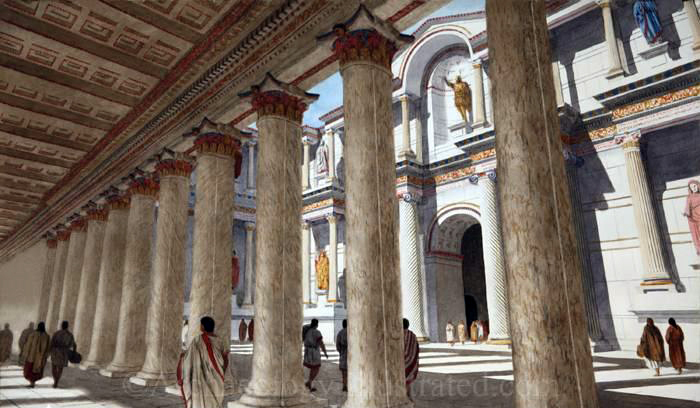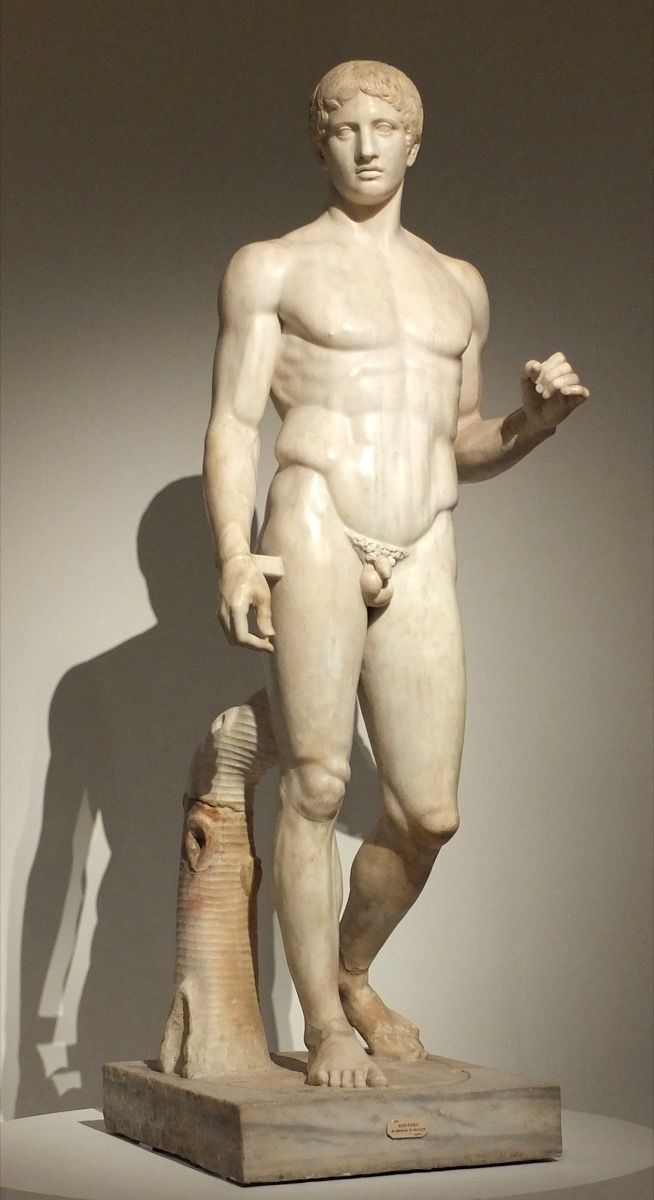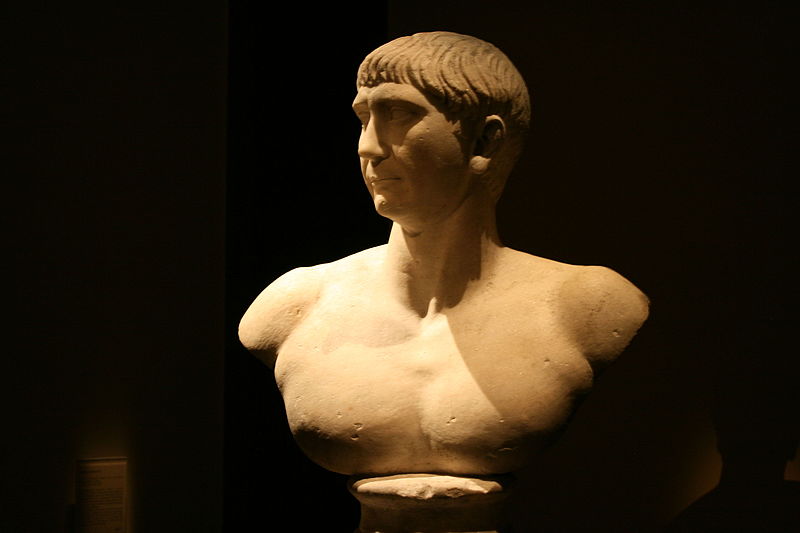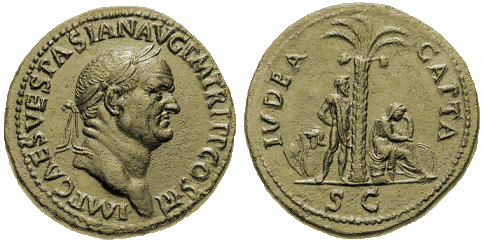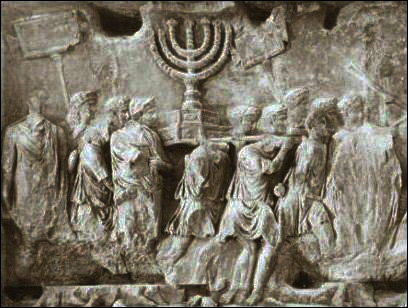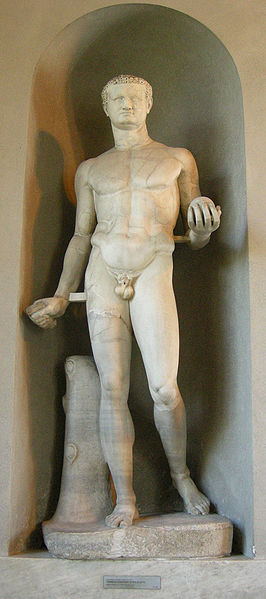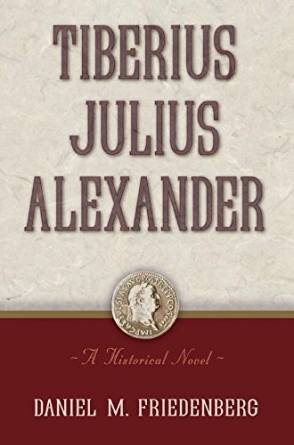by Evropa Soberana
Christianity takes hold outside Judea
As soon as the Jews learn about the events in Rome with the Christians, they begin to plan an uprising and, perfectly coordinated, rebel throughout the Roman Empire. Thus, in the year 66, in a rapid and well-planned coup d’état, they put to the knife all the non-Jewish inhabitants of Jerusalem except the slaves. Nero uses his legions to crush the revolt harshly in the rest of the Empire, but in their capital the Jews become strong. In the year 68, just as General Vespasian left to take Jerusalem, Nero is mysteriously murdered.
Vespasian, then, becomes emperor and sends his son Titus to the front of the X Legio, with the aim of crushing the Jews. The year 70 Rome triumphs; Jerusalem is devastated and sacked by the Roman legionaries and it is said that in the process a million Jews died under Roman arms (only in Jerusalem the town had accumulated, during the siege, three million Jews). This year 70, fateful, traumatizing, outrageous and key for Jewry, sees the enslavement and dispersion of Jews throughout the Mediterranean (Diaspora), greatly enhancing the growth of Christianity.
There are successive emperors (Trajan, Hadrian) very aware of the Jewish problem, who do not pay much attention to Christians, mainly because they are too busy with the Judaic puzzle in ‘holy land’, repressing the Jews again and again, without destroying them completely.
In this time, the new religion grows little by little, gaining followers among the enslaved masses thanks to its egalitarian ideology and also in high positions of the administration: among an increasingly decadent and materialist bureaucracy. Christianity glorified misfortune instead of glorifying the struggle against it; considered suffering as a merit that dignifies itself and proclaimed that Paradise awaits anyone who behaves well. (Remember how the pagans taught that only fighters entered the Valhalla.)
It is the religion of the slaves, and they willingly subscribe to it. Early Christianity played a very similar role to that of the later Freemasonry: it was a Jewish strategy dressed up using weak and ambitious characters, fascinating them with a sinister ritualism. The result was like a communism for the Roman Empire, even favouring the ‘emancipation’ and independence of women from their husbands by capturing them with a strange and novel Christian liturgy, and urging them to donate their own money to the cause (a scam quite similar in its essence to the current New Age cults).

This map in Spanish shows the extension of Christianity around the year 100. The Roman Empire is represented in a lighter shade than the barbarian territories. Note that the areas of Christian preaching
coincide exactly with the densest Jewish settlement areas.
It is at the beginning of the second century that the figure of Christian fat cats called ‘bishops’ begins to take on importance. Saint Ignatius of Antioch wrote in the year 107, in the most corny way: ‘It is obvious that we must look to a bishop like the Lord in person. His clerics are in harmony with their bishop like the strings of a harp, and the result is a hymn of praise to Jesus Christ of minds that feel in unison’. St. Ignatius is captured by the Roman authorities, and thrown to the lions in 107. (It is interesting to pay attention to the names of the preachers, since they always come from eastern mestizo and Judaized areas; in this case, Syria.)
Around the year 150, the Greek Marcion tries to form a kind of ‘de-Judaised’ purification in Christianity, rejecting the Old Testament; giving pre-eminent importance to the Gospel of St. Luke and adopting a Gnostic worldview with Orphic and Manichean airs. This is the first attempt of reform or Europeanization of Christianity: trying to deprive it from its obvious Jewish roots.[1] Marcion’s followers, the Marcionites, who professed a Gnostic creed, are classified as heretics by mainstream Christianity.
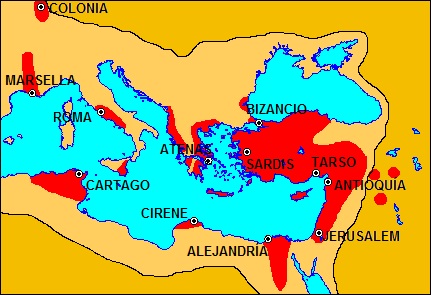
This map shows the general expansion of Christianity in 185. Note the great difference with respect to the previous map and note also that the area most influenced by Christianity is still the Eastern
Mediterranean: a highly Semitic zone.
Sometime after the year 200, in view of the incorporation into Christianity of great new masses that did not speak Greek but Latin, a Latin translation of the Gospels began to circulate in most western Christian centres.
The emperor Diocletian (reigned 284-305) divided the Empire into two halves to make it more governable. He keeps the eastern part and hands over the western part to Maximian, a former comrade in arms. He establishes a rigid bureaucracy, and these measures smell like irremediable decadence. Despite this, Diocletian is a just and realistic veteran. He allows its Christian legionaries to be absent from pagan ceremonies, provided they maintain their military discipline.
But this was precisely the trickiest issue, where the bishops insolently defy the authority of the emperor. Diocletian, however, is benevolent and only one Christian pacifist is executed. However, he now insists that Christians participate in state ceremonies of a religious nature, and the Christian response to this decision is growing pride and arrogance, with numerous revolts and provocations.
But even at this point, Diocletian renounces to apply the death penalty, contenting himself with making slaves of the rebels that he captured. The answer to this are more riots and a fire in the imperial palace itself, and provocations and Christian insolence occur throughout the Empire. But the most Diocletian does is to execute nine rebellious bishops and eighty rebels in Palestine, the area most troubled by Christian rebellions.
One of these rebels was a spawn named St. Procopius of Scythopolis. To get an idea of which kind of creature Procopius was, let’s see the words of a contemporary, Bishop Eusebius of Caesarea: ‘He had tamed his body until turning it, so to speak, into a corpse; but the strength that his soul found in the word of God gave strength to his body… He only studied the word of God and had little knowledge of the profane sciences’. That is to say, this sub-man was a sick body and a crushed and resentful spirit, moved away from all the natural goods of the world, and who only knows the Bible and the speeches of the bishops.
In the beginning Christianity was nourished of similar men: Jewish practitioners of an asceticism bordering on sadomasochism who turned their bodies into a wreck, and their spirits into tyrannical and resentful shepherds.
Despite the softness of these persecutions, Diocletian goes down in history as a monster thirsting for Christian blood (history is written by the victors). The certain thing is that, after emperor Diocletian’s reign, Rome entered frank decay.
____________________
[1] Note of the Editor: In our times, adepts of Christian Identity also desperately try to square the circle by claiming that Aryans descend from the biblical characters.

